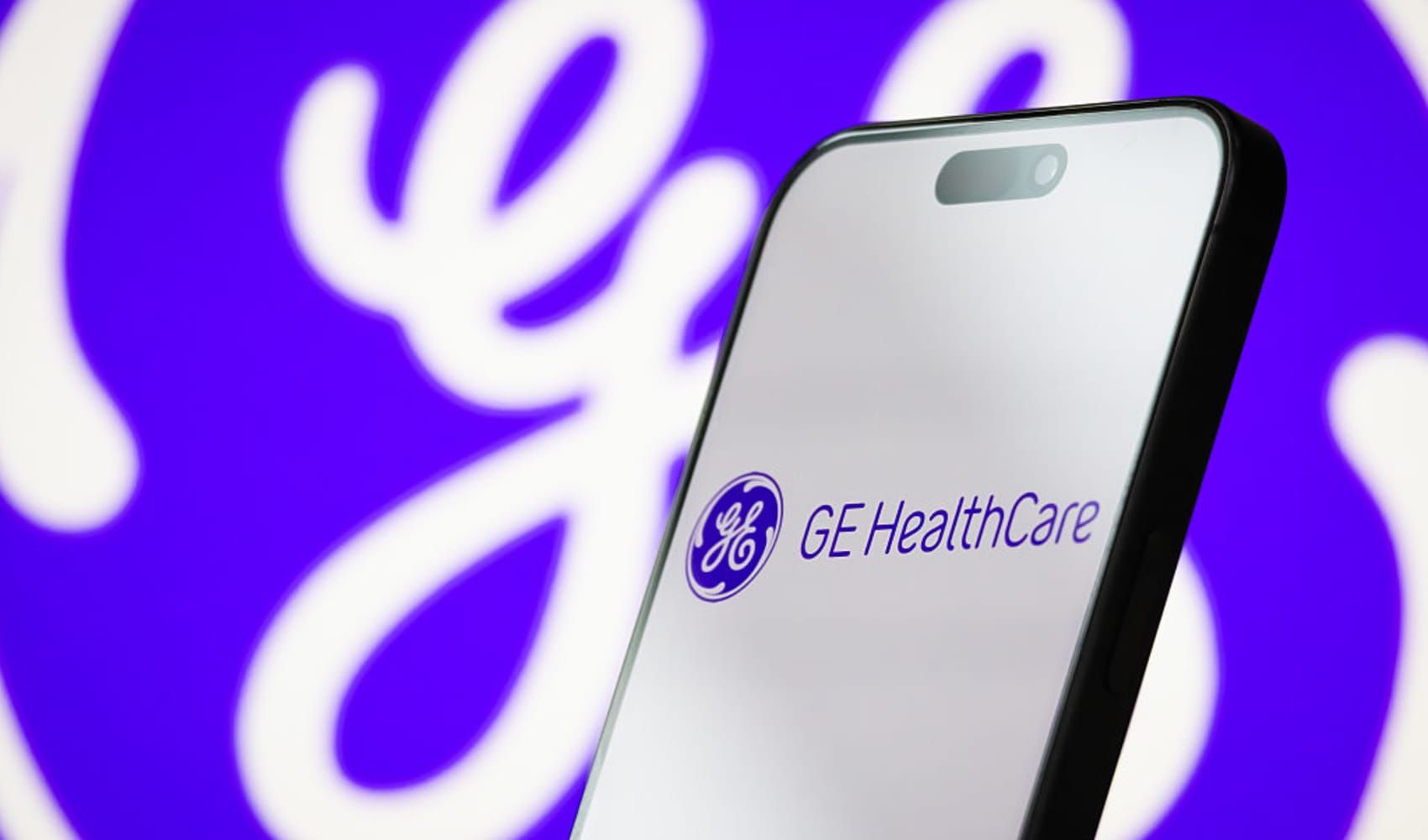GE HealthCare: Earnings Beat, Tariff Outlook Cut - What's Next?
GE HealthCare Soars on Earnings, Dips on Tariff Fears: What You Need to Know
Introduction: A Tale of Two Fortunes
Ever feel like you're riding a roller coaster? That's kind of what it's like following the stock market sometimes. And speaking of roller coasters, let's talk about GE HealthCare! They just reported some fantastic first-quarter earnings that blew past expectations, but there's a catch. They've also had to lower their full-year outlook because of, you guessed it, tariffs. It's a classic "good news, bad news" scenario, so let's dive into the details.
First-Quarter Triumph: Beating the Street
GE HealthCare kicked off the year with a bang! They not only met expectations but completely smashed them. It's like they were playing a video game on "easy" mode – but trust me, the healthcare industry is anything but easy.
Earnings per Share: A Solid Win
The company reported adjusted earnings per share (EPS) of $1.01, handily beating the LSEG estimate of 91 cents. That's a pretty significant difference! Imagine if you were expecting a $91 bonus and got $101 instead – that's the kind of positive surprise we're talking about.
Revenue: More Money, More Problems?
The revenue also exceeded expectations, coming in at $4.78 billion compared to the anticipated $4.66 billion. That's a 3% increase year-over-year. So, where's the problem, you ask? Well, hold onto your hats because that's where the tariffs come in.
The Tariff Tightrope: A Balancing Act
Remember those "reciprocal" tariffs from the Trump era? They're still casting a shadow over GE HealthCare's future performance. It's like running a race with ankle weights – you can still win, but it's going to be a lot harder.
Impact on Full-Year Outlook: Lowered Expectations
Due to the tariff headwinds, GE HealthCare had to make the tough decision to lower its full-year forecast. This means they expect to make less money than initially projected. It’s like planning a big vacation and then realizing you have unexpected bills to pay – you might have to scale back your plans.
Why Tariffs Matter: A Chain Reaction
Tariffs aren't just some abstract economic concept; they have real-world consequences. They increase the cost of importing goods, which in turn can raise prices for consumers and businesses. For GE HealthCare, it means they might have to pay more for components or materials they import, impacting their profitability.
Stock Market Reaction: A Positive Sign, But Cautious Optimism
Despite the tariff concerns, investors seemed pleased with the overall performance, as shares of GE HealthCare closed up 3% on Wednesday. It's a sign that the market still has confidence in the company's ability to navigate these challenges.
Delving Deeper: GE HealthCare's Business Segments
To truly understand the company's performance, we need to look at its different business segments. GE HealthCare is a diverse company, so understanding how each segment is performing is key.
Imaging: A Clear Picture of Success
The imaging segment is a major driver of revenue for GE HealthCare, and its performance is crucial to the company's overall success. Are they investing in innovative new technologies? Are they gaining market share?
Ultrasound: The Sound of Growth
Ultrasound is another important area for GE HealthCare, offering non-invasive diagnostic solutions. Are they seeing growth in emerging markets? Are they expanding their product offerings?
Patient Care Solutions: Caring for Patients and Profits
This segment focuses on providing solutions for patient monitoring and critical care. How is this segment adapting to the changing needs of healthcare providers? Are they developing new technologies to improve patient outcomes?
Looking Ahead: Navigating the Uncertainties
The future is always uncertain, but especially so in the current global economic climate. GE HealthCare faces a number of challenges, but also has opportunities to grow and innovate.
Innovation: The Key to Long-Term Success
In the fast-paced world of healthcare, innovation is essential. GE HealthCare needs to continue investing in research and development to stay ahead of the curve. Are they focusing on artificial intelligence, machine learning, or other cutting-edge technologies?
Global Expansion: Reaching New Markets
Expanding into new markets is another way for GE HealthCare to drive growth. Are they targeting emerging economies with high growth potential? Are they adapting their products and services to meet the specific needs of these markets?
Cost Management: Efficiency is Key
In a challenging economic environment, cost management is more important than ever. GE HealthCare needs to find ways to operate more efficiently to protect its profit margins. Are they streamlining their operations? Are they reducing waste?
Conclusion: A Mixed Bag with Potential
So, what's the takeaway? GE HealthCare delivered a strong first quarter, exceeding expectations on both earnings and revenue. However, the company is facing headwinds from tariffs, which led to a lowered full-year outlook. The stock market reacted positively, indicating confidence in the company's ability to navigate these challenges. Ultimately, GE HealthCare remains a company with significant potential, but success will depend on its ability to innovate, expand globally, and manage costs effectively. It's a story of strong performance tempered by global economic realities, a situation many companies are facing today.
Frequently Asked Questions (FAQs)
- Why did GE HealthCare lower its full-year outlook?
The company lowered its forecast primarily due to the anticipated impact of tariffs, which increase the cost of imported goods and affect their profitability.
- What does "earnings per share" (EPS) mean?
EPS is a company's profit allocated to each outstanding share of common stock. It serves as an indicator of a company's profitability.
- How did the stock market react to the news?
Shares of GE HealthCare closed up 3% on Wednesday, suggesting investors were encouraged by the first-quarter results despite the concerns about tariffs.
- What are the main business segments of GE HealthCare?
The main segments include Imaging, Ultrasound, and Patient Care Solutions, each focusing on different aspects of healthcare technology and services.
- What are some of the key challenges facing GE HealthCare in the future?
Besides tariffs, key challenges include maintaining innovation, expanding into new global markets, and effectively managing costs in a competitive environment.

